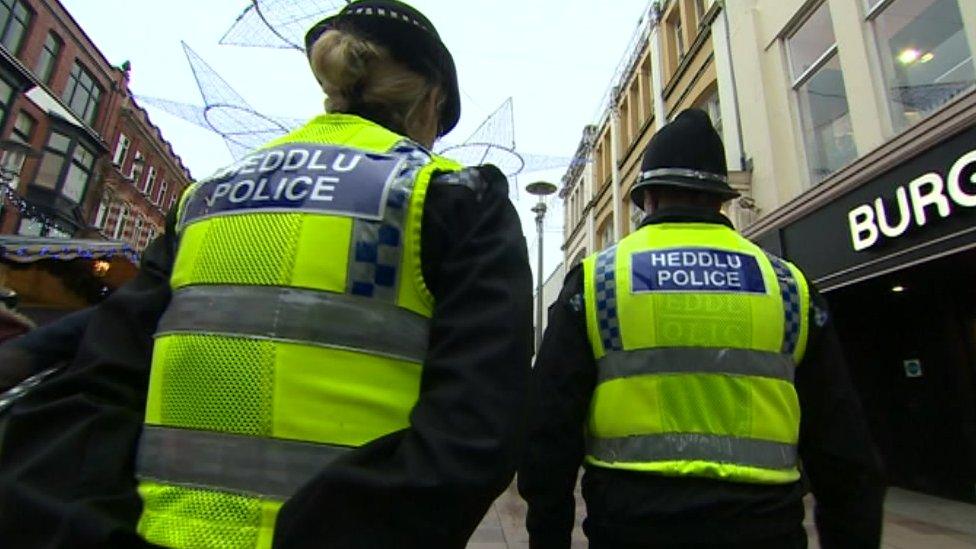Dyfed-Powys Police 'must improve safeguards and cut crime'
- Published
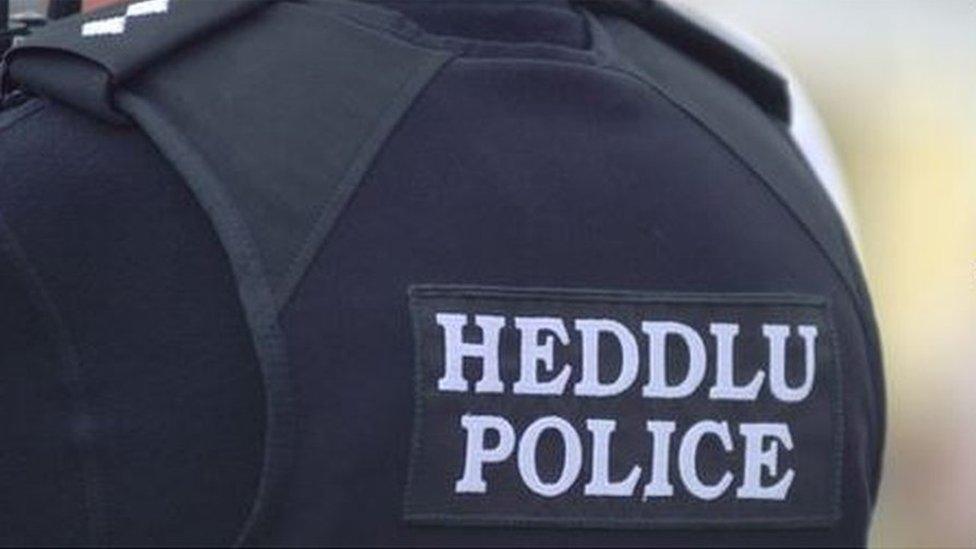
Dyfed-Powys Police has been told it must improve how it keeps people safe and reduces crime.
The force "requires improvement", Her Majesty's Inspectorate of Constabulary (HMIC) said following a review of effective policing, external levels in England and Wales.
But it deemed South Wales, Gwent and North Wales police forces as "good".
Dyfed-Powys Police said it was "very aware of the work that remains ahead of us".
The watchdog judged forces on how effective they are in four areas:
At preventing crime and anti-social behaviour
At investigating crime and managing offenders
At protecting vulnerable people and supporting victims
At tackling serious and organised crime
The report said Dyfed-Powys Police does well at preventing crime and tackling anti-social behaviour, and that it responds well to serious and organised crime.
But it raised concerns about its investigation standards and said there were "weaknesses" in how it supports and safeguards vulnerable people.
Gwent Police was told it needs to improve how it tackles serious and organised crime while North Wales Police also needs to do more to support and protect vulnerable people.
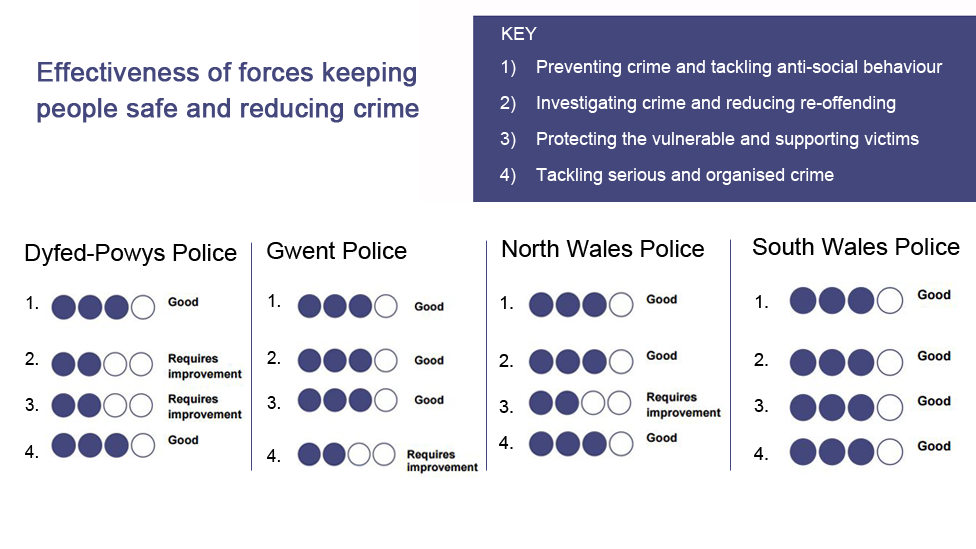
The report also showed there were significantly more cases of anti-social behaviour per person in the Gwent force area than the rest of Wales last year - 45 incidents compared to the 31 average across England and Wales.
It comes after police had to deal with "riots" in Newport last October when groups threw fireworks and set wheelie bins set alight.
North Wales also had the highest number of organised crime groups per person out of the Welsh forces - 65 compared to the England and Wales average of 46.
And the report showed the south Wales force area had the highest number of domestic abuse cases in Wales - 20, which was slightly higher than the average of 16.
HMI Zoe Billingham, who led the inspection, said: "Over the last few years, HMIC has said consistently that police forces were managing well in increasingly difficult circumstances.
"Nonetheless, today, I'm raising a red flag to warn forces of the consequences of what is, to all intents and purposes, an unconscious form of rationing of police services."

North Wales PCC Arfon Jones and South Wales PCC Alun Michael
Responding to the report, Dyfed-Powys Police's Deputy Chief Constable Darren Davies said: "The report identifies a number of areas of positive progress and good practice, but there remains the need for yet further improvement.
"The inspection was conducted some months ago, and we have and will continue to take robust steps to address the areas for improvement with the support of partners, staff and communities."
He added the force was due to introduce new initiatives "to ensure that we get the basics right in all our interactions with our communities, protect the vulnerable and deliver a high quality police service for all".
South Wales Police and Crime Commissioner (PCC) Alun Michael said he was "very pleased" to see the report had "once again acknowledged the good work that is being carried out" by the force.
"This latest HMIC report reflects that our commitment to prevent crime, to support victims and work in partnership is well understood throughout the force and our vision is being put into practice by officers on the frontline," he said.
North Wales PCC Arfon Jones said: "I am encouraged by the findings of the report that will provide reassurance to the people of north Wales.
"There is always room for improvement and I will continue to scrutinise the force and hold the chief constable to account to ensure the region is policed efficiently and effectively."
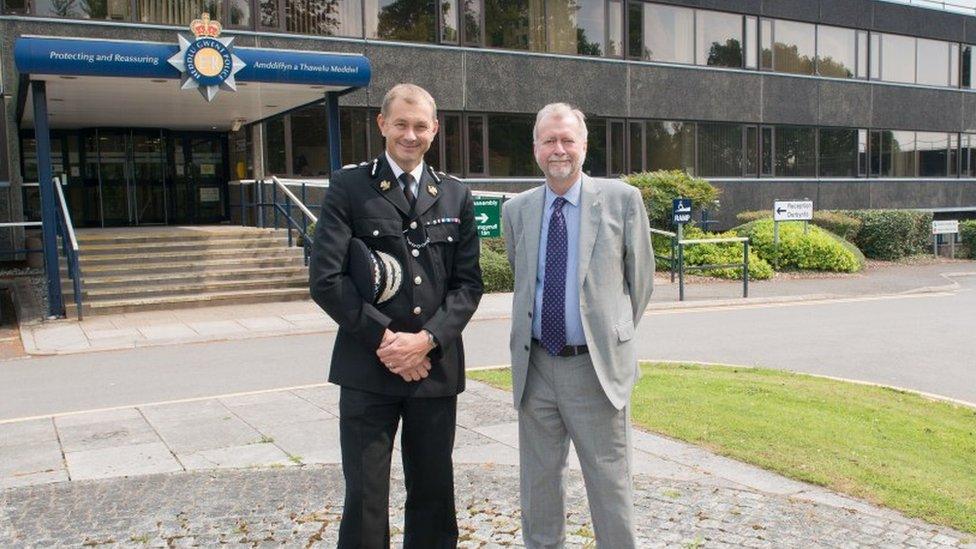
Chief Constable of Gwent Police Jeff Farrar and Gwent PCC Jeff Cuthbert
Gwent PCC Jeff Cuthbert said the increase in recording of anti-social behaviour (ASB) had "come as no surprise".
"The increase could be attributed to an improvement in the recording of crime which Gwent Police has championed.
"We have also prioritised our resources, become more efficient and we restructured the force to to provide extra officers on the frontline in our communities."
- Published2 March 2017
- Published8 December 2016
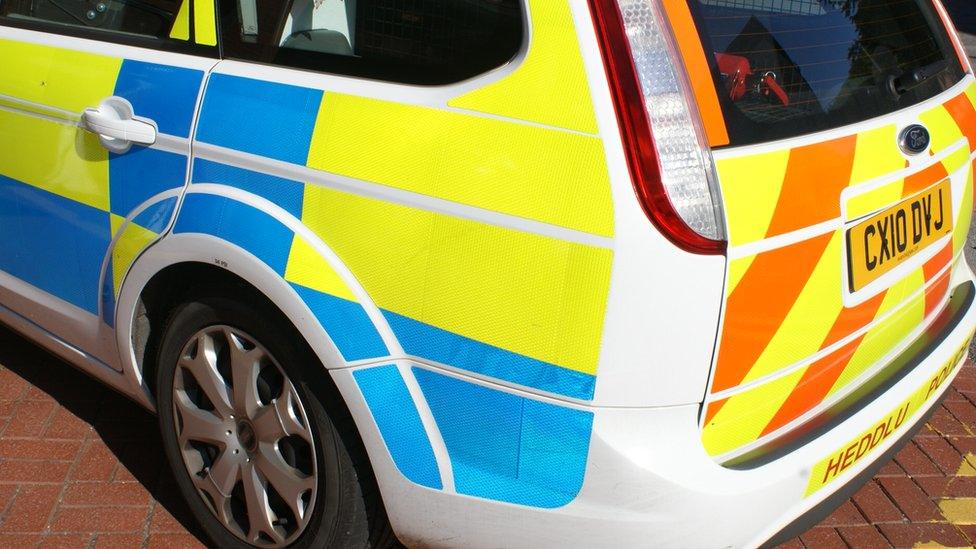
- Published18 February 2016
